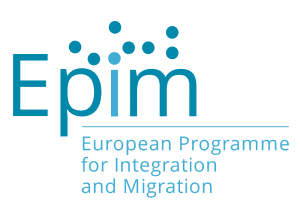New Report on Applying Alternatives to Detention in Bulgaria Published by the CLA
This article was originally published on the DETAINED web platform by the Center for Legal Aid – Voice in Bulgaria.
Earlier this summer, the CLA published the report “Applying Engagement-Based Alternatives to Detention of Migrants in Bulgaria: Opportunities and Challenges”. The report is based on the work implementing the 2-year project “Protecting Migrants with Precarious Status: Decreasing the use of Detention and Applying Community-Based Alternatives”, funded by the European Programme for Integration and Migration (EPIM).
From 1st January 2017 to 30th April 2019, the CLA worked with 50 foreign nationals at risk of pre-removal detention. The participants were from 13 countries, with the largest numbers from Iraq, Iran, and Côte d’Ivoire. They included 44 men and 6 women, with most participants between the ages of 18–40. At the start of the CM process, most had been in Bulgaria between 3–5 years. The CM component of the project was conducted over 2 years and 4 months. In objective terms, this is at the lower end of the range of average time needed to achieve case resolution in what are usually complicated migration situations.
As of February 2019, 27 of the 50 cases had been completed. The fact that nearly half the cases had not achieved resolution highlights the fact that CM is a long-term process, and should be analysed over a longer period of time.
Out of the 27 completed cases, 7 ended with legal status in Bulgaria, while 10 ended with voluntary return to their country of origin. Of those clients obtaining legal status, 4 were granted humanitarian status, while the remaining 3 were granted residence permits for family reunification following voluntary return. In these cases, case managers facilitated the procedures of voluntary return and re-entry.
In 44 out of the 50 total cases, the clients had already experienced detention prior to enrolment in the CM Programme. In 7 out of the 50 cases the clients experienced re-detention during the course of the project. Out of the seven, 3 ended with consensual return procedures from within detention (thanks to the legal advice of the CM Programme), 2 were released after successful court appeals, 1 ended via deportation, and 1 was still in detention as of February 2019.
Of the 50 cases, 9 clients absconded, and 3 lost contact with the CLA.
The results of the CM Programme confirm the hypothesis that case management is a viable alternative to detention. It can have a positive impact on people’s ability to engage with immigration procedures, thus efficiently working towards lasting case-resolution. This conclusion is confirmed by an independent interim evaluation report of the three ATD pilot projects funded by EPIM in Bulgaria, Cyprus and Poland, published in July 2018.[1] In the Bulgarian pilot, in 94 % of the cases the participants remained in constant engagement with the CM team and the authorities, working towards resolution. On the other hand, CM alone cannot address deficiencies in the migration system.
[1] Eiri Ohtani, “Alternatives to detention from theory to practice – Evaluation of three engagement-based alternative to immigration detention pilot projects in Bulgaria, Cyprus and Poland”, available at: https://www.epim.info/wp-content/uploads/2018/10/ATD-Evaluation-Report_FINAL.pdf





